#will you still view me as the number one riddler fan in the world
Explore tagged Tumblr posts
Text
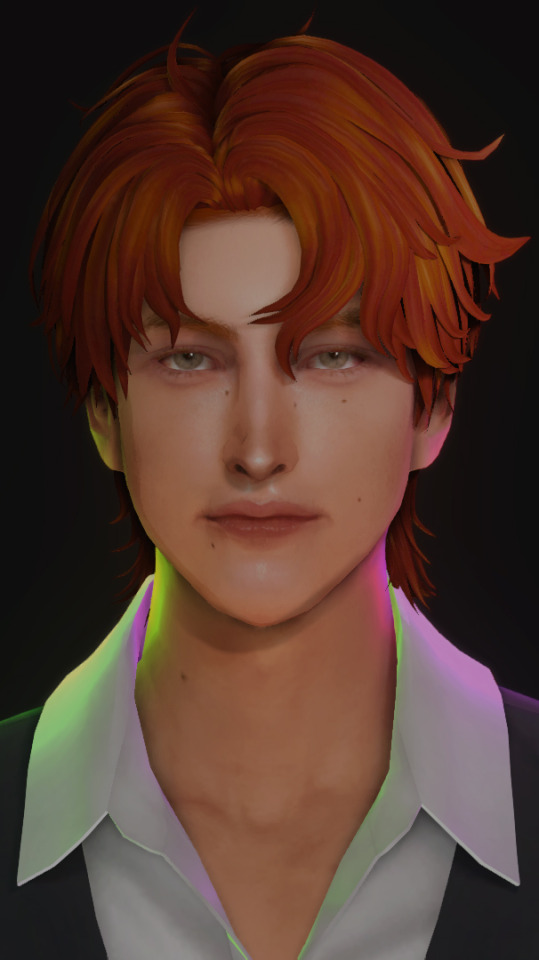
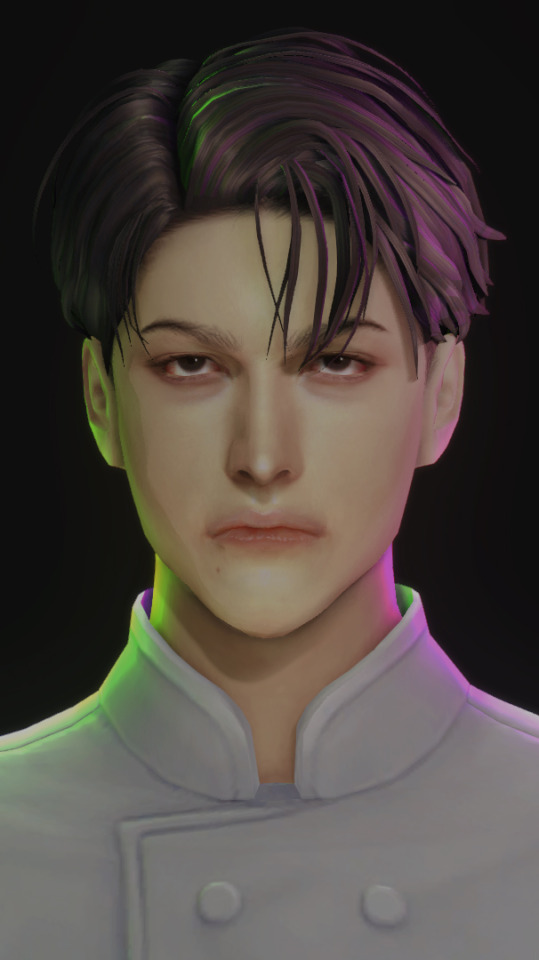
pretty neat game
#that we're not gonna say the title of.#💀🍽#how's that#the creators are active on here and i am not risking breaching containment today#also. to be honest. kinda seems like a fanbase i'd rather keep at an arm's length#i finished all four endings today and just now i finished the creators' other game which was PHENOMENAL#seriously if you guys play the game you HAVE to check out that one next holy shittttt#also i think this cas lighting is too intense for me i think i need to switch back i'm over it#will you still view me as the number one riddler fan in the world#ts4#ts4 cas#the sims 4
121 notes
·
View notes
Text
Why a Penguin/Riddler spinoff makes sense (and you know I’m right)
Lots of talk over on the Gotham subreddit regarding potential spinoffs and what form they should take. The only one so far that’s been given (slight) heft is the possibility of a Catwoman spinoff, mainly because John Stephens mentioned it (take that as you will) and people speculating that the Gotham finale functioned just as much as a pilot for a Catwoman show as a Batman show.
Another idea doing the rounds on the subreddit is a show focusing on Bruce Wayne’s travels and training around Asia and the rest of the world during the ten years between 5.11 and 5.12. Although I personally wouldn’t be interested in something like that, there are people who would be. I still don’t think it would work, though, for a number of reasons.
First of all, it would cost an absolute fortune to make. If they wanted to make the settings and atmosphere convincing, they’d have to shoot overseas in different locations – NYC Chinatown won’t cut it. Failing that, they’d have to invest in some pretty heavy-duty CGI. I’m just not convinced the budget is there in TV for either situation, except for sure hits like GoT. If networks are going to put up that kind of money they’d sooner do it for an actual Batman show, which could be shot entirely in the US and would at least have some kind of guaranteed return in terms of viewers. And CGI isn’t always convincing either.
Secondly, they might not get David Mazouz back; he may be going to college. Or they might decide to recast if he can’t bulk up sufficiently; Bruce was recast for the Gotham finale, after all. In any case, a Bruce’s Travels show without David would effectively sever any physical connection with Gotham’s universe. The point of interest for Gotham’s fans would be gone.
Which is what leads me to my point – the best and most viable continuation of Gotham’s universe would be a show centred around Penguin and Riddler. I’m biased here. But it makes sense even from an objective perspective. Here’s why:
1. Penguin and Riddler were far and away the high point of Gotham for many viewers (I would include J in this, based solely on Cameron Monaghan’s performances, but restrictions on showing the Joker in full led to a somewhat messy trajectory, and in any case, the Joker works best in smaller, high-impact doses). Even people who disliked the show on the whole, and it did have flaws, could at least admit that Robin and Cory did a fantastic job with Oswald and Ed – arguably the best renditions of both characters to date. They have the critical acclaim on their side, and I’m sure there are plenty of people out there who’ll quietly admit to watching Gotham just for them, or mostly for them. It makes sense for producers to focus on what’s already been proven to work.
2. There’s the issue of current trends in comicbook media, and how media companies seem more invested in shining a spotlight on side-characters and villains rather than the better-known heroes. Titans is one example; the upcoming Batwoman show is another. A Penguin and Riddler show would be a great addition; if you’re going to shine a spotlight on Gotham’s villains, you opt for the most popular as a hook. So a show with Oswald and Ed as the hook - centred primarily on their world of villainy and with a reduced focus on the world of the heroes - would also open doors for other rogues who were underutilised or otherwise served poorly by Gotham.
3. Marvel is doing a Falcon and Winter Soldier show, indicating that the ‘bickering buddies’ thing has legs. Penguin and Riddler could be DC’s villainous answer.
4. Penguin and Riddler are two of the most grounded Batman villains – they don’t have superpowers, but they do possess certain skill sets that allow them to survive and mostly thrive. Because they are relatively grounded, even realistic to a degree, you can show them in relatable, humanising situations – their everyday lives outside of their ‘work’. Stuff like this is essential to building a rapport with viewers and creating some measure of empathy for the otherwise-roguish protagonists. If events post-5.11 are retconned, for example, the show could bring Martin back into the picture.
This ‘relatability factor’ also works as a platform to showcase other, more outrageous and physically powerful rogues as the ‘enemy’. Where Oswald and Ed aren’t the ‘good’ guys, per se (they can’t be – they’re villains who use villainous tactics) but just happen to be the best of a bad bunch, if that makes sense.
A situation where Penguin and Riddler = bad and Other Rogues = worse would position them as the anti-heroes of the show, and their relative grounded-ness would make it work. Indeed, while Ed seems to embrace his villainy for the most part, it can be argued that Oswald actually views himself as a hero – a guy who has to do terrible things to keep his city safe from even greater perils.
5. Finally, the show wouldn’t cost an enormous amount to make. A focus on fewer characters means fewer big salaries and fewer competing arcs, which in turn means tighter, better writing and more money for high-quality sets, guest actors, good writers, and decent effects where necessary.
Let me know what you think!
#nygmobblepot#nygmobblepot spinoff#oswald cobblepot#penguin#edward nygma#riddler#gotham#gotham 5.12#gotham sequel#gotham spinoff#savegotham
289 notes
·
View notes
Text
Batman Starter Pack
I’ve been through this routine once before (including the preface that I recognize there are a million other lists exactly like this on every comics-related site out there) but after having shared some starting points for Superman on Miracle Monday, I figure my second-favorite guy with his own personalized set of crime-fighting pajamas merits the same treatment on his own special day.
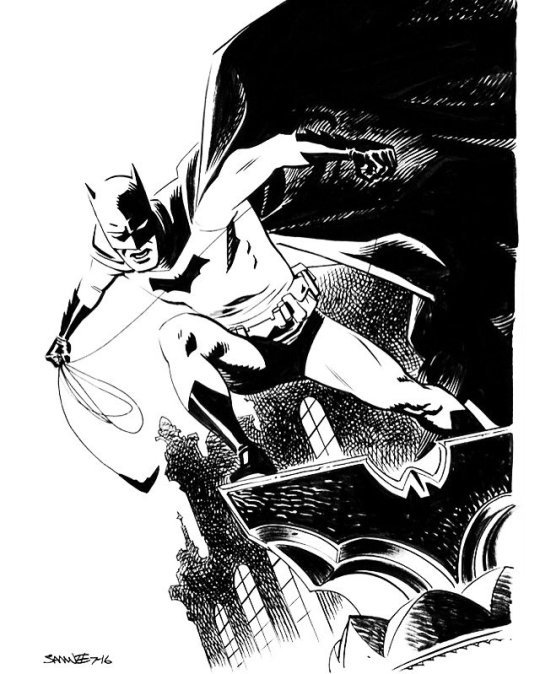
Assuming you’re forgoing a more traditional celebration of DC’s Batman Day - either having your parents brutally shot to death in front of your terrified, uncomprehending young eyes, or finishing your criminology degree and engaging in anonymous back-alley karate fights with circus clowns in response to the same - looking into some solid starting points for the character is a respectable alternative. Especially given some of his most classic adventures have recently come under some degree of critical reevaluation, while the likes of The Lego Batman Movie, the much-missed Batman: The Brave and the Bold, and the resurgence of the 1960s Batman TV show alongside contemporary developments in the comics have done a great deal to change the general perception of the character. So once again, here’s ten stories in a recommended - but by no means strict - order that should, as a whole, give you a pretty decent idea of what Batman’s deal is and why you should care, all of which you should be able to find pretty easily on Comixology or a local bookstore/comic book shop.
1. Batman: Zero Year
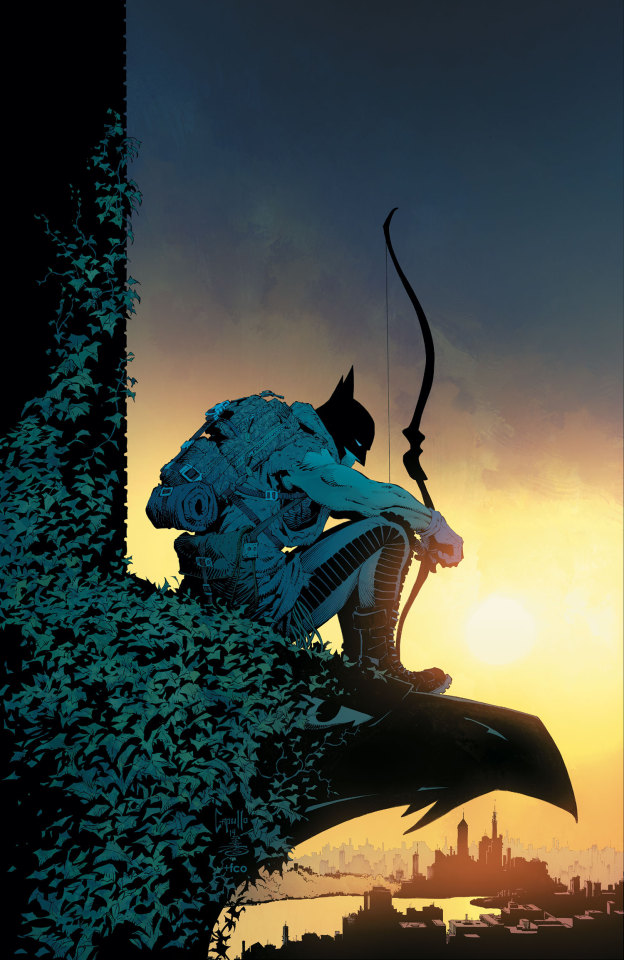
What it’s about: The current ‘canon’ take on his origin, it’s a pretty straightforward take on Bruce Wayne’s return to Gotham, early forays into crimefighting against the Red Hood Gang, and assumption of his familiar mantle...until the Riddler, a city-wrecking superstorm, and a literal bone monster get involved, culminating in a final act that has a sleeveless, dirtbike-riding Batman trying to save a post-apocalyptic Gotham whose citizens have become hopeless slaves of Edward Nygma’s merciless totalitarian riddle kingdom.
Why you should read it: This comic is bonkers, in absolutely the best way. Writer Scott Snyder has repeatedly said that since the previous major take on Batman’s origin in Year One was so iconic - to the point that, unlike Superman’s regularly refreshed history, it remained solidly in continuity for 25 years - no attempt at hitting the reset button could feasibly follow in its footsteps, and so the only way to make it work was to go as far in the opposite direction as possible, hence Dirtbike Batman and a Gotham of neon pink skies. And for all that, it works remarkably: it’s perhaps the least subtle Batman comic of all time, but it’s a solid look into what drives him, why he does what he does in the way he does it, and the beginnings of his relationships with some of his closest friends and enemies in the context of a mad, blockbuster story ranging from scraps with cops and gangsters to a race against time to literally save a city from death by fire. It is in many ways perhaps the most proudly and bluntly Batmaney Batman story of all time, the core of his world as screamed through a megaphone.
Further recommendations if you liked it: While maybe the most iconic work from their time together, Scott Snyder and Greg Capullo worked together on the main Batman title for 5 years and almost 50 issues, in arguably the most acclaimed run of Batman comics of the 21st century; I’d primarily suggest checking out Court of Owls, their first and for me best collaboration, but their entire tenure is worth your time, collected across 10 volumes. If you specifically want to indulge the off-kilter “wait, Batman’s doing what?” sensibility of Zero Year further, after his time on Batman proper Snyder wrote All-Star Batman, working with a number of iconic artists on some of his weirdest Batman comics; his later The Batman Who Laughs operates in much the same mode. If you’re mainly interested in the sort of Big Batman Event Story this and Court of Owls wrote the modern template for, Steve Orlando and companies’ Night of the Monster Men is maybe the most thoroughly entertaining example. And as a respectable recap of Batman’s life since his origins, while many longtime fans are ambivalent at best on it, Batman: Hush is an effective sampler platter of Batman’s history and relationships that’s proven enduringly popular among new readers.
2. Gotham Central
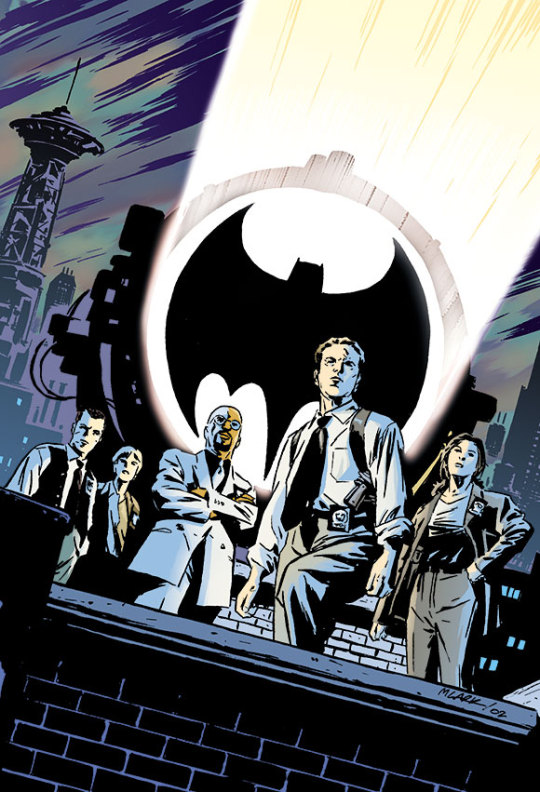
What: Set from the perspective of the grunts of the GCPD, Gotham Central shows what it means to be a cop in a city where you’re a pawn of the Bat at best, corrupt or a casualty if you’re not so lucky.
Why: Certainly the most acclaimed Batman-related ongoing ever published, there’s no book that better sells the ‘street level’ take on his world that so many want; Batman himself is largely a background presence, feared and resented by our actual leads as they go up against the incidental fallout of Gotham’s particular brand of horror. And all that’s before you even get to the Joker story that directly inspired The Dark Knight. While Gotham’s more traditional heroes may rarely show up, there’s no story that better explains why they’re needed, and what it means to live in their wake. And it’s Ed Brubaker and Greg Rucka and Michael Lark doing a cop book, so even Batman aside it’s worth your money ten times over.
Recommendations: Gotham Central may be a cop comic, but the cities’ most iconic officer in Commissioner Gordon only makes one or two appearances since he had retired at the time (an obviously temporary condition). If you really want to see him in action, you’re looking for Batman: Year One. Typically cited as one of the all-time great Batman stories - and it absolutely has some of his definitive moments and iconography - at heart it’s Lieutenant Jim Gordon’s year of figuring out how to make it in Gotham without losing his soul in the process, and it was that infusion of grim crime noir into the world of Gotham that defined the aesthetic Gotham Central operates under. If you’d like to pursue that particular line further, Batman: Turning Points is also worth hunting down, showing Batman and Gordon’s relationship develop over the years in reference to major upheavals in Batman’s world, and Batman: The Black Mirror, operating under a similar tone and showing Dick Grayson working with Gordon during the former’s own time in the cape and cowl, in a mystery connecting to both Batman: Year One and my next recommendation. Additionally, Kurt Busiek and John Paul Leon’s Batman: Creature of the Night provides an entirely different and disturbing type of ‘street-level’, ‘realistic’ view of Batman.
3. Batman: The Dark Knight Returns
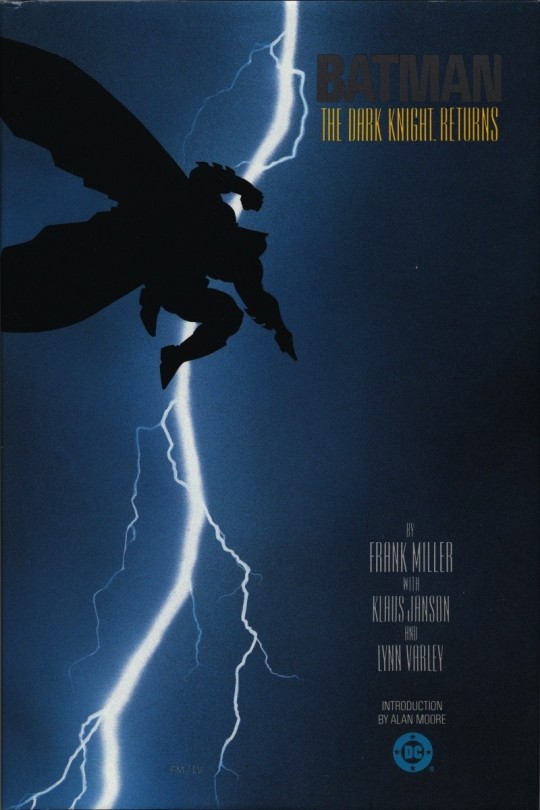
What: A decade after his retirement, an unprecedented Gotham crime wave forces a middle-aged Bruce Wayne out of retirement as he proves unable to resist the call of his demons. But even as he fights back the Mutant gang and recruits a new Robin, his resurgence has caught the attention of familiar enemies, and the political shockwaves of his vigilantism will ultimately bring him face-to-face with his oldest ally in a fight he simply can’t win.
Why: Commonly held up alongside Watchmen, which is a...touch of an overstatement in hindsight, while aspects of its politics and portrayal of the Dark Knight in question have aged somewhat questionably it’s regardless a justified classic by a one-time master of the medium at the top of his form, packed from top to bottom with brilliant storytelling, jaw-dropping moments, and a redefinition of the character that not only shapes him to this day, but the superhero genre as a whole. Definitely and very reasonably not for everyone, but essential to Batman as he exists today.
Recommendations: Frank Miller’s presented numerous followups to The Dark Knight Returns, and while The Dark Knight Strikes Back and All-Star Batman & Robin The Boy Wonder are hardly lacking in lively experimental flavor or gonzo charm, they’re an acquired taste at best: if you want to see more of this version of Batman’s world, you’re safest going for The Dark Knight Returns: The Last Crusade, a one-shot portraying the events leading up to Batman’s retirement a decade before DKR. For other seminal Batman stories that either don’t quite live up to the hype or have aged questionably but are all-in-all still probably worth looking into, check Arkham Asylum: A Serious House On Serious Earth, Batman: The Long Halloween (followed up by Batman: Dark Victory) and possibly The Killing Joke.
4. Batman: Ego and other Tails
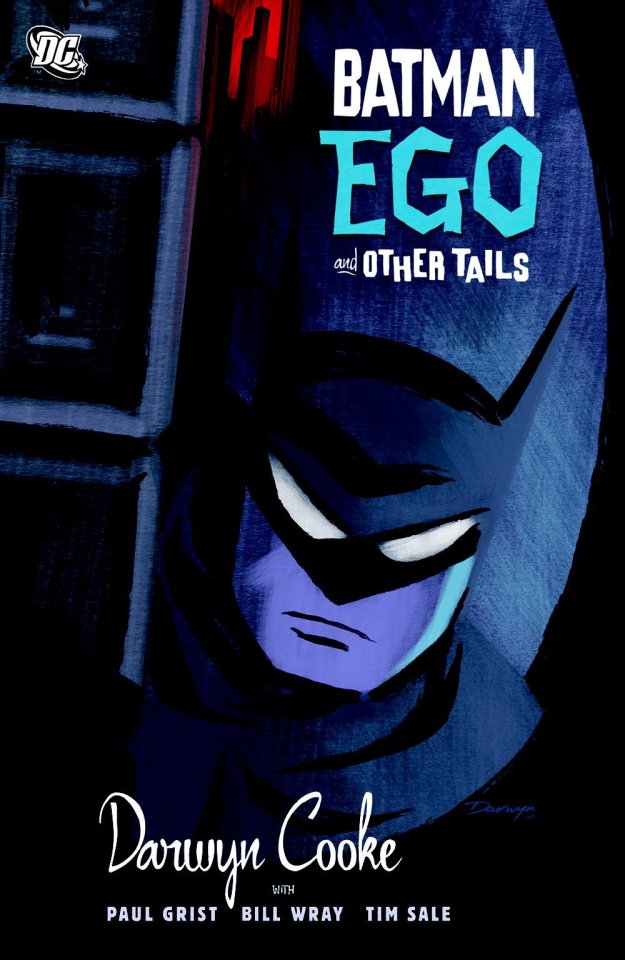
What: Before he was widely lauded for DC: The New Frontier, Darwyn Cooke was a storyboard artist for what we now know as the DCAU family of cartoons; his pitch for the job included a 14-page Batman story that years later would be edited and expanded upon to become Batman: Ego, where a catastrophic series of events leads Bruce to consider leaving his mission behind, forcing him to confront his demons more literally than ever before.
Why: Stories that question Batman’s sanity and his place in the world are a dime a dozen, but none like this, probably the deepest individual dive of all time into what exactly makes Batman tick. To say much more would spoil the amazing central conceit, but from his moral code to what he does or doesn’t give up by forgoing his life as Bruce Wayne, there are few aspects of his world this doesn’t touch on one way or another. Plus, while Ego may be the lead, the modern collection is stuffed full of other excellent Batman comics Darwyn Cooke had a hand in one way or another.
Recommendations: Most significantly, the collection also contains Selina’s Big Score, a Catwoman heist comic that leads into Ed Brubaker’s seminal run on the character, which are spread out over three trades that are absolutely worth picking up. If you’re interested in another story in the DCAU style and tone that goes into darker territory than the cartoons would typically dare, try Mad Love, the definitive Harley Quinn story. And if you want another headtrippy Batman comic that delves into his psychology, you’re looking for Death and the Maidens, intended at the time to be Batman’s final confrontation with Ra’s Al Ghul and featuring a conversation 65 years in the making.
5. Matt Wagner’s Dark Moon Rising titles
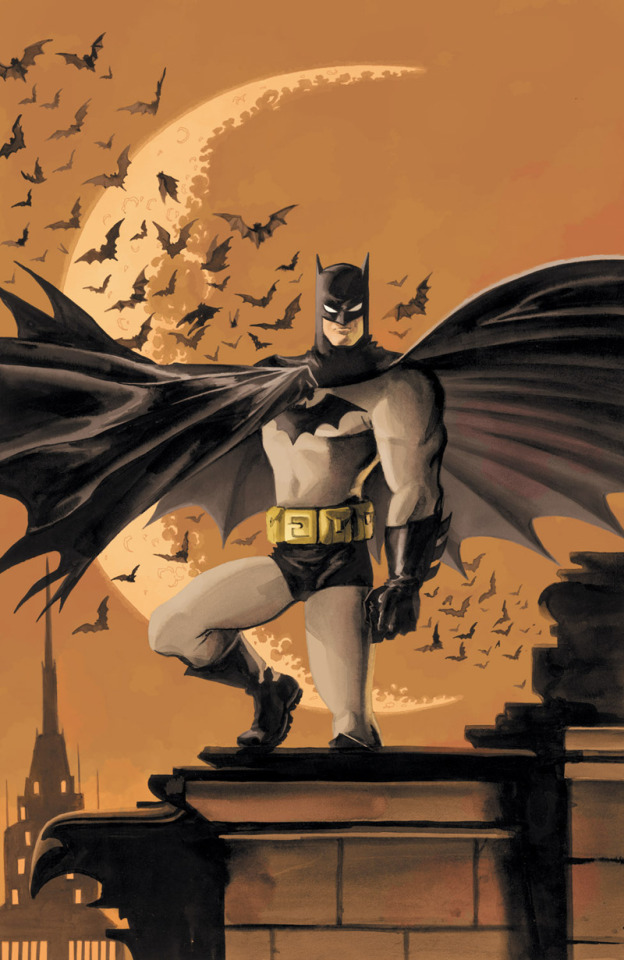
What: Eventually branded under the title of Dark Moon Rising, this series is actually made up of two six-part tales: Batman and the Monster Men and Batman and the Mad Monk, each Matt Wagner’s retelling of a classic Golden Age Batman story, from an era where the supernatural was not quite so distanced from Batman’s usual world.
Why: On a simple level, these are just some real good Batman comics; Matt Wagner’s a phenomenal fit for the character, these are nice and standalone, and Batman has to escape some deathtraps, which is always a treat. But the introduction of the truly bizarre to Batman’s world - by a standard that allows for coin-flipping disfigured District Attorneys and maladjusted widowers with freeze-rays as all part of the regular scenery, anyway - can be something of a hurdle, especially for new readers. In that regard this is a perfect introduction to the more outré side of Batman’s job, cushioning the transition with wild pulp adventure and thrilling horror in a series that feels entirely of the same world seen in the likes of Year One, even as Batman fights a vampire who is also a werewolf.
Recommendations: If you enjoyed the look at a Batman who’s still somewhat figuring out his limits and the parameters of his operation, you’re in luck, as Year One-era Batman stories formed their own effective subgenre for the character for awhile, primarily in the series Legends of the Dark Knight, which had one of the better hit-to-miss ratios for Batman ongoing titles, and Batman: The Man Who Laughs, Ed Brubaker and Doug Mahnke’s take on his first encounter with the Clown Prince of Crime. If the pulpy noir approach is what appealed, I’d say you might be in the market for Batman: Strange Apparitions, the collection of Steve Englehart and Marshall Rogers’ highly influential 1977-1978 tenure on Detective Comics (plus a preceding couple issues by Englehart drawn by Walter Simonson, and a couple issues by Rogers without Englehart), a major step on the road to Batman as he exists today which also featured the - at the time - unexpected return of one of the Golden Age villains Wagner features.
6. Nightwing: Better Than Batman
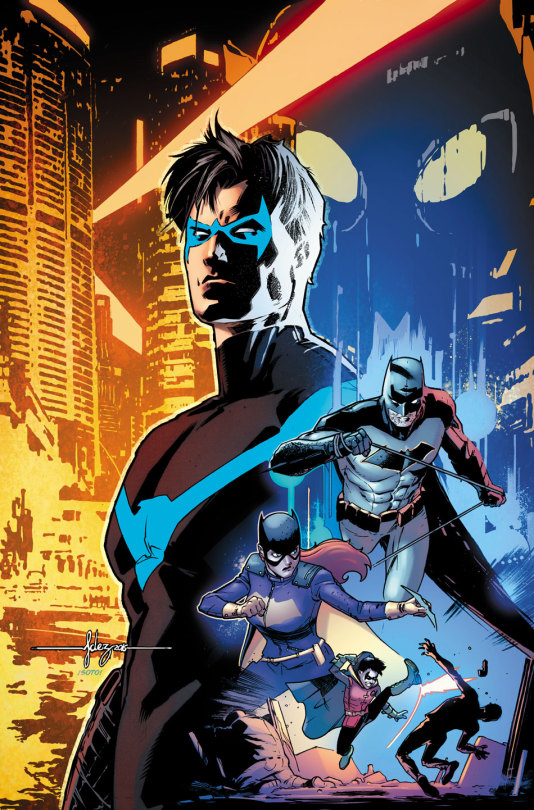
What: Under the thumb of the Parliament of Owls, the Courts’ international equivalent - if with more up his sleeve than they expect - Nightwing finds himself in deeper than he ever could have imagined as he falls under the ‘mentorship’ of the mercenary Raptor, who not only leaves Dick questioning lessons he had previously taken as gospel, but tumbling down a rabbit hole through his own past that threatens to destroy the life he’s built for himself in the present.
Why: There’s no comprehensive look at Batman that doesn’t involve the family he’s built for himself, and this in my mind is the definitive story of the original Robin. Touching on his heritage, his early days as the Boy Wonder, his modern MO as a dashing international superhero with a pinch of espionage, and his connections with the rest of his crime-fighting family, the heart of the story is his relationship with Bruce: their days as Batman and Robin, their differing methods and ideologies, the complications stemming from their distinct backgrounds, and how their brotherhood ultimately saved them both. More than any other single book it underlines the foundation of what makes Dick Grayson work, and by extension the entire concept of the Batman Family.
Recommendations: Better Than Batman is the most compact and satisfying example of what defines Robin and the Batman Family as a whole, but if you’d prefer something more expansive in scope, Batman and Robin Eternal touches on many of the some ideas. For both a solid look back at Dick’s career back when wearing pixie boots, as well as the origin of one of the other two major templates for Batman’s sidekicks, Robin/Batgirl: Year One collects a pair of cult classic stories, Batgirl in particular being the one to check out. As for the third, while Jason Todd’s most iconic story is unquestionably Death in the Family, its actual quality hardly lives up to its enduring imagery and impact; you’ll be best served looking at his return from the grave in Batman: Under The Hood. Alfred’s the other major foundation of the family, and for him I’d probably recommend the soon-to-conclude All-Star Batman arc The First Ally. As for the rest of the family, for hitting the most members in one package I’d recommend James Tynion IV’s run on Detective Comics - beginning with the trade Rise of the Batmen - which returns or recontextualizes a number of fan-favorite characters under an umbrella of incredibly solid Batman Family adventure stories.
7. Paul Dini’s Detective Comics
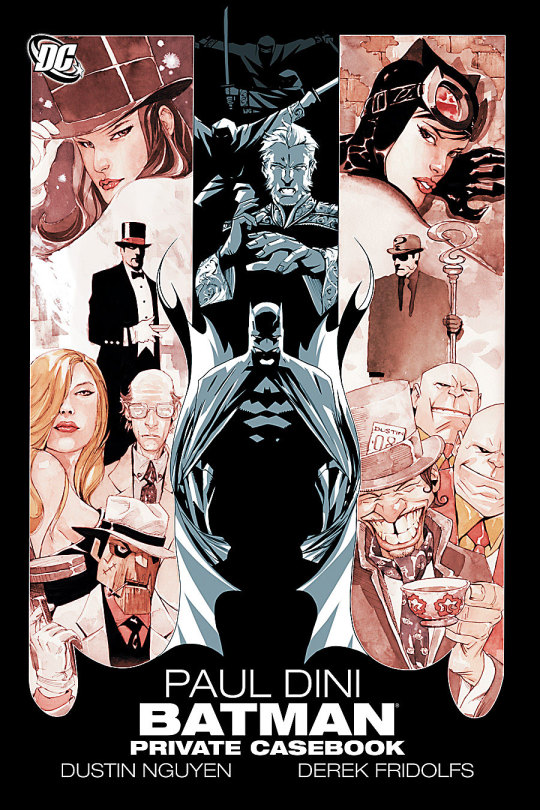
What: Collected across Batman: Detective, Batman: Death and the City, Batman: Private Casebook, and Batman: Heart of Hush, Paul Dini - one of the main architects of Batman: The Animated Series, and much of the later DCAU as well - serves up a run of almost uniformly excellent, largely done-in-one Batman adventure stories.
Why: Iconic storylines may draw attention to a character, but the brick and mortar of the greats is laid on a foundation of just plain good comics, month-in and month-out, and there are few better examples for Batman than with Dini’s tenure on Detective Comics, especially with the likes of J.H. Williams, Don Kramer and Dustin Nguyen in tow. They may not be stories that redefined the character for a new generation, but they’re simply and unassailably Quality Comics of a sort rarely achieved.
Recommendations: For a more old-school example of the same principle, Denny O’Neil and Neal Adams’ classic tenure on the character is as good as it gets, featuring the likes of The Joker’s Five-Way Revenge - the first comic since his earliest appearances in the 1940s to portray him as the killer clown we know today - and the first appearance of Ra’s Al Ghul. The multiple spinoff comics of Batman: The Animated Series such as the multiple iterations of Batman Adventures and Batman: Gotham Adventures also have a solid hit-to-miss ratio in that regard. And if you’re interested in more of Paul Dini’s Batman comics, Batman: City of Crime with Alex Ross is one of the characters’ all-time great stories, and Dark Night: A True Batman Story with Eduardo Risso is a powerful autobiographical piece on how Dini’s life and work collided in his darkest hour.
8. The Greatest Batman Stories Ever Told
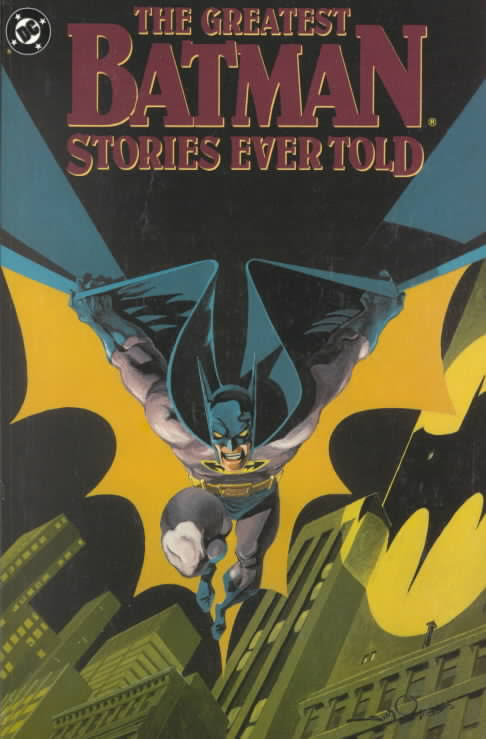
What: Exactly what it sounds like, this trade collects standout Batman stories from across the first 50 years of his history.
Why: The trouble with comics is that not all of a characters’ best material is necessarily in individual trades, or single runs - just stick to those and you’ll miss out on some stone-cold classics. There have been plenty of collections attempting to gather up the ‘best of the rest’ to rectify that though, and of those I’d particularly recommend the edition above, filled from top-to-bottom with not only delightful artifacts like The Batman Nobody Knows! and A Caper a Day Keeps the Batman at Bay!, but definitive stories such as The Autobiography of Bruce Wayne! and Death Strikes at Midnight and Three.
Recommendations: For a similarly charming - though I believe far more difficult to track down - retrospective, Batman from the 30′s to the 70′s is certainly worth picking up if you ever happen to see it around. If you find older Batman stories appeal, it’s worth checking out both The Batman Chronicles, collecting his earliest appearances in the 30s and 40s, as well as Showcase Presents: Batman with his 60s adventures, and perhaps the more recent run Batman ‘66, a direct continuation of the Adam West/Burt Ward TV series. You might also be interested in The Brave and the Bold #200, featuring a 'teamup' of sorts between the Batmen of two eras. If what mainly appeals to you is the thrill and comic value of seeing Batman in bizarre situations you’d never see now, Showcase Presents: The Brave and the Bold might be your speed, containing Bob Haney and Jim Aparo’s madcap tenure, as well as Neal Adams’ relatively recent lunatic masterpiece Batman: Odyssey.
9. Planetary/Batman: Night on Earth
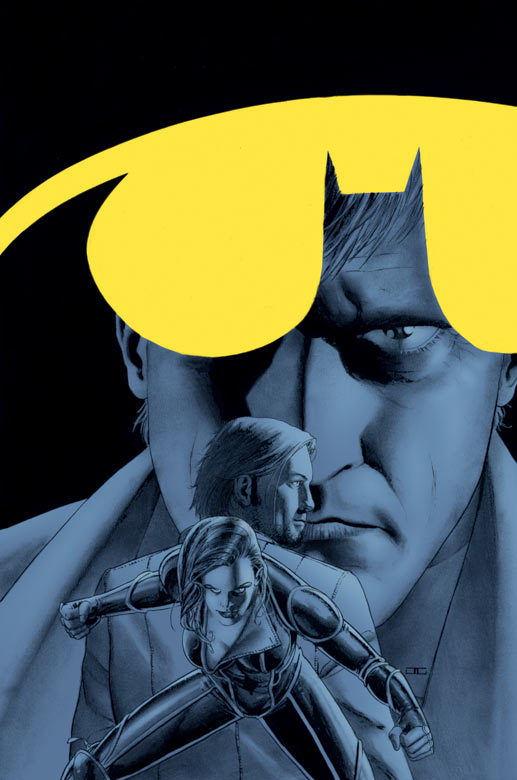
EDIT: This list was written prior to allegations made against Warren Ellis. It’s your money, but while I’d still recommend checking the book out of the library - the quality of the work isn’t going to change now that it’s out there in the universe - if you’re looking to pad your bookshelf I might recommend skipping to some of the books suggested below in its place.
What: “Mystery archaeologists” Jakita Wagner, Elijah Snow and The Drummer are a group of superhumans investigating beneath the skin of the Wildstorm universe to uncover the wonders and terrors lurking in its darkest corners. On a trip to Gotham City to apprehend serial killer John Black, his own abilities trigger when cornered to rotate them all through different realities...and in other versions of Gotham, they find they’re not the only ones looking to bring Black to justice.
Why: Planetary built itself on distilling artifacts of 19th and 20th century pop culture (typically by proxy) down to their most essential ideas and iconic values as mysteries to be unveiled, whether 1920s pulp heroes, Godzilla, Sherlock Holmes, 80s and 90s Vertigo comics, James Bond, John Woo revenge flicks, or any of a dozen others. While the other two Planetary crossovers break with formula, this applies it to the biggest modern 20th century icon of all, as a group of hardened Warren Ellis-y superbeings entirely unfamiliar with the concept of ‘Batman’ are forced to run a gauntlet of over 60 years of his most iconic takes when their versions of justice collide. As far as I can tell regarded as a footnote in Batman’s own history, it’s regardless one of his all-time greatest stories, extrapolating him in every direction at once to find the core that unites them all, topping it off with the no-shit best Batman moment of all time.
Recommendations: Most obviously, soon as of the time of this writing Warren Ellis will be tackling a full-scale Batman project alongside longtime collaborator Bryan Hitch, The Batman’s Grave, which I couldn’t be more excited for and obviously recommend checking out. For other stories taking a particularly off-kilter look at Batman and his world, whether through unusual styles or with versions of the character entirely unlike anything ever known, you’ll want to check out the trades of Batman: Black and White, an anthology running as a backup through numerous Batman titles eventually collected in trade, showing a gauntlet of top creators doing their own brief takes on Batman and his world, kicking off no less with another Ellis-written Batman story that powerfully sums up his drive. If you’re looking for something more specifically in the vein of Night on Earth though - a stripped-down, iconic Batman that acknowledges the odder parts of his history and confronts deep emotional truths about himself amidst high-action spectacle - then the current run on Batman proper by Tom King and company is something I’d certainly recommend checking out on the understanding it comes with ups and downs.
10. Batman: The Black Glove
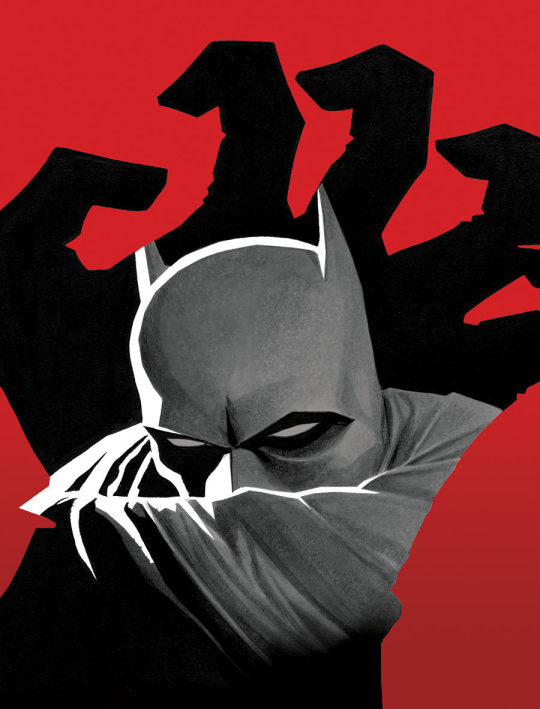
What: From his great lost love to family he’s never known, from the basement of the GCPD to the bowls of Arkham, from the secrets of the past to the horrors of the future, from the ends of the Earth to the inside of his mind, the grip of Batman’s greatest enemy reaches wherever his shadow falls. Collected variously as Batman and Son and Batman: The Black Glove, Bruce Wayne finds himself matched against a seemingly disconnected series of challenges ultimately pointing towards the machinations of a greater threat; one that has constructed his downfall across decades, weaponizing his own mind and history against him as they build towards breaking the Batman once and for all.
Why: These issues are the start of the best Batman comics of all time. They’re absolutely fantastic all on their own, make no mistake; the first arc introduces one of the most significant Bat-family characters of all time, The Clown At Midnight is a criminally underrated classic, and Club of Heroes has J.H. Williams III drawing what amounts to 7 Batmen and 3 Robins being trapped in the plot of And Then There Were None. But more than that, these issues lay the foundation of a 7-year run by Grant Morrison built around mysteries that reach across every facet of Batman’s world, which not only reinvents him as a character, but is frankly and simply the best sustained run on a major superhero of all time. This should by no means be the first Batman comic you ever read, but make no mistake: everything leads to this.
Recommendations: Well, for one thing there’s the rest of the run. Before moving on, you may if possible want to check out Batman: The Black Casebook, a collection of numerous Golden and Silver Age comics that Morrison drew on significant plot and thematic elements of for his work, and Dark Knight Dark City, a supernatural thriller and one of the best Batman-as-detective comics out there which ends up forming much of the spine of some of Morrison’s biggest developments. From there, the rest of his run is collected across Batman R.I.P. > Batman and Robin: Batman Reborn > Time and the Batman > Batman vs. Robin > Return of Bruce Wayne > Batman and Robin Must Die! > Batman Incorporated > Batman Incorporated: Demon Star > Batman Incorporated: Gotham’s Most Wanted.
While much of the impact of the run was immediately dismantled (in large part by Morrison himself, who’s had similar experiences in the past and wanted to show the ideas he introduced off on his own terms here), slowly but surely creators are coming around to what he was doing and have followed up accordingly. Grayson - one of the most beloved DC titles of the last several years - follows the original Robin as he infiltrates the superspy agency Spyral introduced in Batman Incorporated, and leads directly into the previously mentioned current excellent run on Nightwing, which itself has a direct sequel to Morrison’s Bat-tenure in the arc Nightwing Must Die! The major DC event book Dark Nights: Metal by the team behind Batman: Zero Year is itself a direct sequel to several of Morrison’s biggest DC stories, his Batman run most of all. Morrison himself at one point announced plans for Arkham Asylum 2, which rather than following up on his graphic novel Arkham Asylum: A Serious House On Serious Earth is apparently a direct sequel to his Batman epic starring Damian Wayne as the Dark Knight; hopefully it will one day see fruition. Finally, if you’re simply looking for something on a similar wavelength of bizarre, lurid international pulp mystery mixed with wild fist-pumping superhero action and character moments, the ongoing crossover Batman/The Shadow - soon to end and be directly followed-up by The Shadow/Batman with the same writer - is easily one of the best of its kind of cross-company team up and absolutely a descendant of the type of Batman comics Morrison’s tenure produced.
140 notes
·
View notes